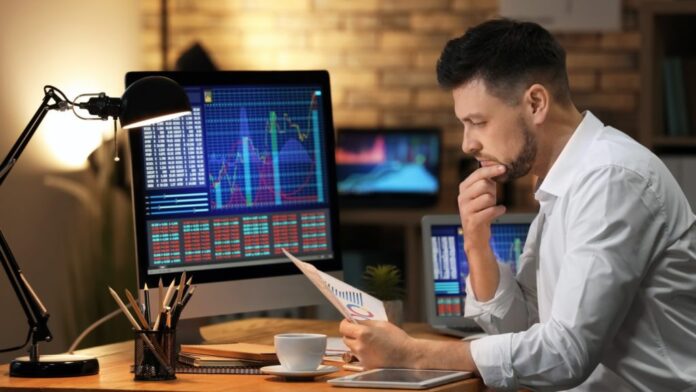In the ever-evolving landscape of finance, coding and automated trading have emerged as crucial players, offering both unprecedented opportunities and profound challenges. But what does it take to navigate this complex realm? For many, the allure of algorithmic strategies sparkles like a mirage: enticing and full of promise, yet shrouded in misconceptions.
While some believe that deep coding knowledge is mandatory for success, others may underestimate the nuanced thinking required to implement effective trading systems. In truth, the intersection of technology and trading is not a simple equation.
It encompasses a diverse skill set, blending analytical rigor with creativity, intuition, and an understanding of market dynamics. Join us as we delve into the realities of coding and automated trading, unearthing the knowledge you truly need to thrive in this fascinating field.
Essential Skills for Automated Trading

To navigate the intricate landscape of automated trading successfully, aspiring traders must equip themselves with a diverse set of skills. First and foremost, a solid foundation in programming languages such as Python or R is essential, allowing traders to develop and refine algorithms tailored to their strategies.
But coding is just the tip of the iceberg; a deep understanding of financial markets, including technical analysis, risk management, and behavioral finance, is equally crucial. Traders should cultivate analytical thinking and problem-solving skills to adapt their systems in response to market fluctuations.
For those looking to deepen their knowledge, it’s essential to explore automated trading to uncover advanced strategies and tools that can optimize performance. Beyond technical prowess, emotional discipline is paramount—being able to resist the lure of impulsive decisions can mean the difference between profit and loss.
Together, these competencies form a formidable toolkit, empowering traders to harness the full potential of automation in pursuit of financial success.
Choosing the Right Tools

Choosing the right tools for automated trading is akin to selecting the perfect instruments for a complex symphony; each piece must harmonize to create your desired outcome. With a plethora of platforms available—from simplistic drag-and-drop interfaces to sophisticated coding environments—the decision can feel overwhelming.
First, consider your experience level; if you\’re just dipping your toes into the water, a user-friendly tool with pre-built algorithms might suit you best. Yet, for those unafraid of diving deeper, a language like Python or a platform that allows custom scripts could unlock unlimited potential. Balancing performance metrics, ease of use, and community support is essential.
Remember, the best tool is not necessarily the most expensive but the one that aligns with your trading goals and your understanding of the market’s intricacies. As you navigate through options, keep in mind that the right tools can elevate your trading experience, propelling you toward your financial aspirations.
The Role of Technology in Trading

In the fast-paced world of trading, technology serves as both a sword and a shield, redefining the battlefield for traders of all stripes. It’s not just about algorithms crunching numbers at lightning speed; it’s about leveraging cutting-edge tools that can analyze vast datasets, discern patterns, and execute trades with pinpoint precision.
Imagine a world where a single click can unleash a cascade of automated trades, each one driven by sophisticated models that continuously adapt to ever-shifting market dynamics. Yet, amidst this whirlwind of innovation, the human element remains crucial.
As traders navigate complex strategies, the integration of technology facilitates not just efficiency but also the ability to reflect on decisions, allowing for real-time adjustments in response to unpredictable market fluctuations. Balancing tech prowess with cognitive insight—this is where the true art of trading emerges.
Conclusion
In conclusion, while coding skills can undoubtedly enhanceone’ss ability to navigate and optimize automated trading systems, they are not an absolute requirement for success in the trading arena. Being well-versed in market fundamentals, risk management, and trading psychology can often outweigh the technical prowess in coding.
Ultimately, aspiring traders should focus on leveraging the tools available to them—be it through coding or user-friendly trading platforms—to develop and implement their strategies effectively. By striking a balance between understanding the underlying principles of trading and exploring automated trading options, individuals can position themselves for better decision-making and, ultimately, improved trading outcomes.




